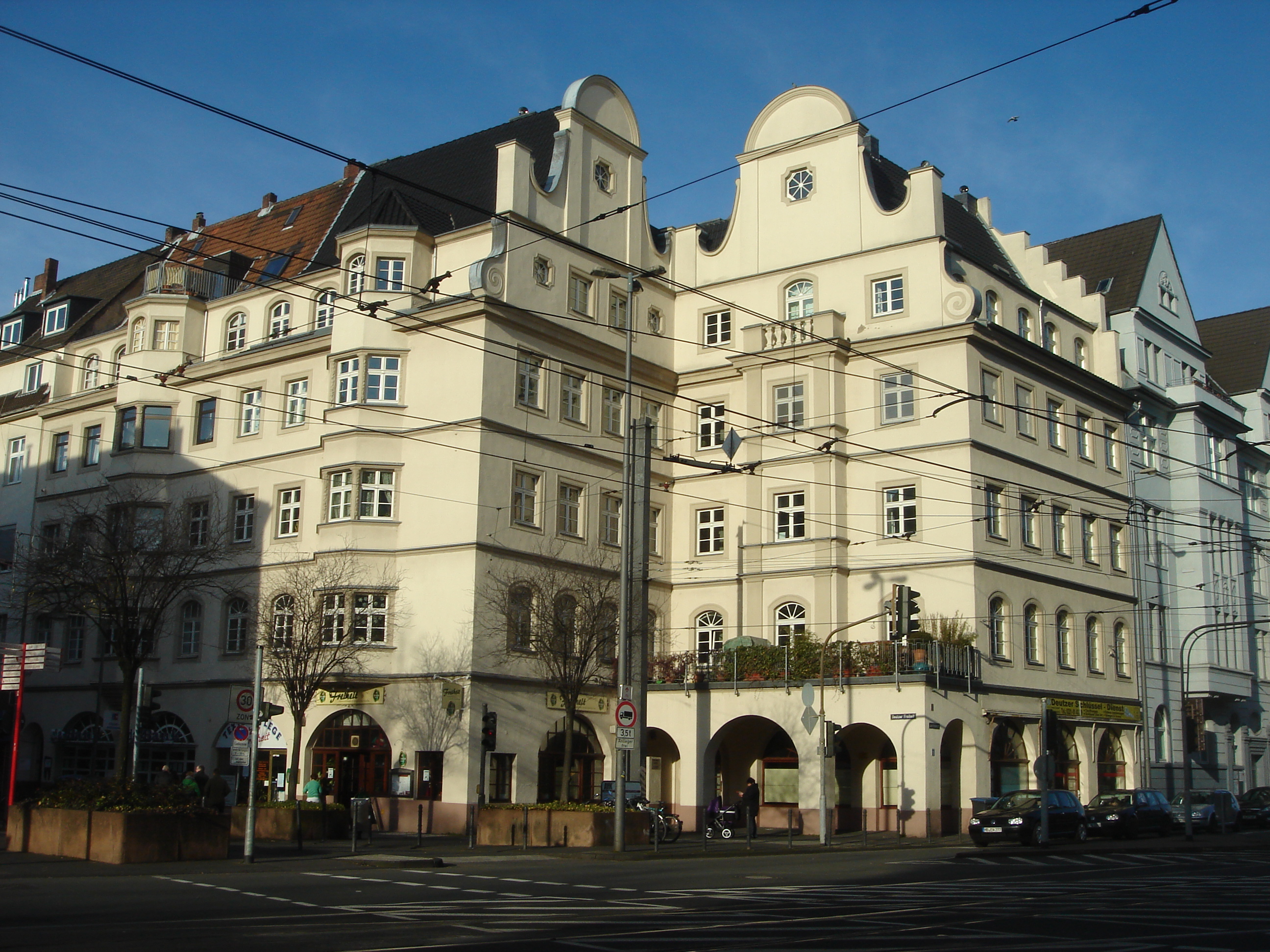Deutz, Cologne on:
[Wikipedia]
[Google]
[Amazon]
 The Cologne borough of Deutz ( ; ) is a part of central
The Cologne borough of Deutz ( ; ) is a part of central
Cologne
Cologne ( ; ; ) is the largest city of the States of Germany, German state of North Rhine-Westphalia and the List of cities in Germany by population, fourth-most populous city of Germany with nearly 1.1 million inhabitants in the city pr ...
, Germany
Germany, officially the Federal Republic of Germany, is a country in Central Europe. It lies between the Baltic Sea and the North Sea to the north and the Alps to the south. Its sixteen States of Germany, constituent states have a total popu ...
, and was once an independent town.
History
Deutz was established under Roman EmperorConstantine I
Constantine I (27 February 27222 May 337), also known as Constantine the Great, was a Roman emperor from AD 306 to 337 and the first Roman emperor to convert to Christianity. He played a Constantine the Great and Christianity, pivotal ro ...
in 310 AD, when he established ''Castrum Divitia'', a military camp built on the banks of the Rhine
The Rhine ( ) is one of the List of rivers of Europe, major rivers in Europe. The river begins in the Swiss canton of Graubünden in the southeastern Swiss Alps. It forms part of the Swiss-Liechtenstein border, then part of the Austria–Swit ...
across from Colonia Claudia Ara Agrippinensium
Colonia Claudia Ara Agrippinensium was the Roman colony in the Rhineland from which the city of Cologne, now in Germany, developed.
It was usually called ''Colonia'' (colony) and was the capital of the Roman province of Germania Inferior and ...
. Camp and city were linked via a bridge from the same time. During the Middle Ages, Deutz was an important centre of learning in medieval Germany. Up into the early Middle Ages it was known by the Latin name ''Divitia'', from the 10th century as ''Tuitium''. It was located on the right bank of the Rhine
The Rhine ( ) is one of the List of rivers of Europe, major rivers in Europe. The river begins in the Swiss canton of Graubünden in the southeastern Swiss Alps. It forms part of the Swiss-Liechtenstein border, then part of the Austria–Swit ...
, opposite Cologne, which grew up on the left bank.
In 1002, the old castle in Deutz was made a Benedictine
The Benedictines, officially the Order of Saint Benedict (, abbreviated as O.S.B. or OSB), are a mainly contemplative monastic order of the Catholic Church for men and for women who follow the Rule of Saint Benedict. Initiated in 529, th ...
monastery
A monastery is a building or complex of buildings comprising the domestic quarters and workplaces of Monasticism, monastics, monks or nuns, whether living in Cenobitic monasticism, communities or alone (hermits). A monastery generally includes a ...
by Heribert, archbishop of Cologne, and the important abbey
An abbey is a type of monastery used by members of a religious order under the governance of an abbot or abbess. Abbeys provide a complex of buildings and land for religious activities, work, and housing of Christians, Christian monks and nun ...
was home to many influential theologians, such as Rupert of Deutz
Rupert of Deutz (; c. 1075/1080 – c. 1129) was an influential Benedictine theologian, exegete and writer on liturgical and musical topics.
Life
Rupert was most likely born in or around Liège in the years 1075-1080, and there, as was the ...
. Permission to fortify the town was in 1230 granted to the citizens by the archbishop of Cologne, between whom and the counts of Berg
Berg () was a state—originally a county, later a duchy—in the Rhineland of Germany. Its capital was Düsseldorf. It existed as a distinct political entity from the early 12th to the 19th centuries. It was a member state of the Holy Roman Emp ...
it was divided in 1240. It was burnt in 1376, 1445 and 1583; and in 1678, after the Treaties of Nijmegen, the fortifications were dismantled; they were rebuilt in 1816 and finally razed in 1888.
In 1869, Nicolaus August Otto and Eugen Langen moved their company NA Otto and Cie to Deutz, where the company was renamed to Gasmotoren-Fabrik Deutz (the "Deutz Gas Engine Manufacturing Company"). Arguably, this is the birthplace of the modern Otto-engine, precursor for all modern internal combustion engine
An internal combustion engine (ICE or IC engine) is a heat engine in which the combustion of a fuel occurs with an oxidizer (usually air) in a combustion chamber that is an integral part of the working fluid flow circuit. In an internal comb ...
s.
Modern Deutz
Deutz was formally incorporated into Cologne in 1888. Modern Deutz is the part of the Cologne city centre on the right bank of the river. The location of Deutz on the river embankment opposite the old town of Cologne, the district serves as an important business centre and transportation hub: next to the Rheinpark, the Cologne trade fair grounds, theLanxess Arena
Lanxess Arena (stylized as LANXESS arena; originally Kölnarena, German for "Cologne arena") is an indoor arena, in Cologne, North Rhine-Westphalia, Germany. It is known as the 18,500-capacity home of the Kölner Haie and as one of Germany's major ...
and Köln Messe/Deutz station, there are a number of municipal and regional government offices based in Deutz. Politically Deutz is part of the administrative district '' Innenstadt''.
People
The painter August Lemmer and the socialist politicianAugust Bebel
Ferdinand August Bebel (; 22 February 1840 – 13 August 1913) was a German socialist activist and politician. He was one of the principal founders of the Social Democratic Party of Germany (SPD).
Bebel, a woodworker by trade, co-founded the Sa ...
were born in Deutz.
References
External links
{{Authority control Innenstadt, Cologne Boroughs and quarters of Cologne